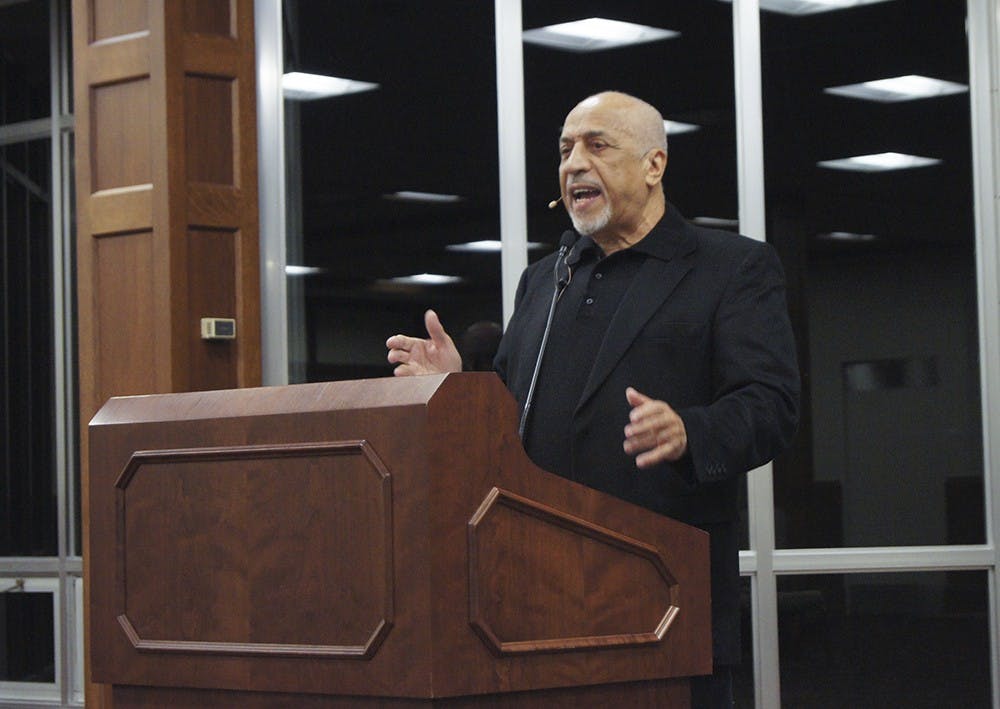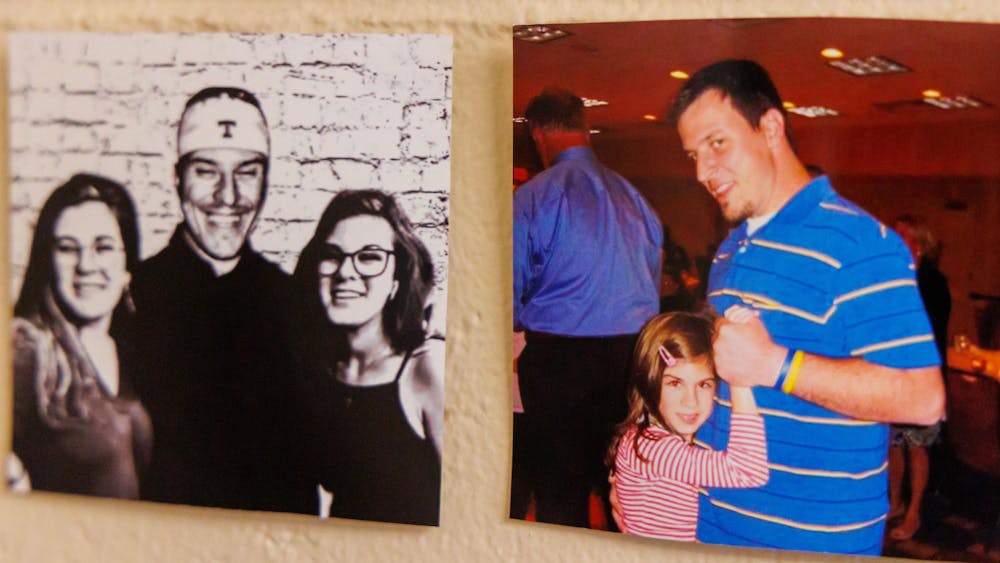After the success of last spring’s event, Alpha Phi Alpha and Kappa Alpha Psi wanted to continue the conversation of socioeconomics within the black community, Alpha Phi Alpha President Treon McClendon said.
“I feel like sometimes we focus on our own priorities and everyday life, and sometimes we forget about these issues,” McClendon said. “It’s something we don’t just wake up with and have the mindset when we are out in the community and in class.”
Last year, RACEnomics hosted speakers Dr. Bryon Craig, Eric Ryans and Dr. Uman Johnson. This year, Claud Anderson spoke in the Indiana Memorial Union Solarium. Anderson is the president of PowerNomics Corporation of America. Anderson has written several books about black ?socioeconomic history.
The lecture’s main goal was to educate students on the pros and cons of the African-American community trying to obtain economic independence throughout history, McClendon said.
“It’s something we don’t really think about,” he said. “When we take time to sit and actually get a realization of things that’s when you’re able to better judge these type of topics and expand and broaden your horizons on different issues that pertain to you.”
Anderson opened the talk with a warning that his lecture may offend or upset some but he advised not to get angry but to get smart.
“Contrary to what anybody tells you all, I don’t care if it comes out of a black mouth or a white mouth, anyone who tells you that blacks have progressed in America is lying to you,” Anderson said.
Anderson spoke of how African-American history has influenced the current state of the black community.
“Here we are 140 years ?after slavery and blacks are as happy as they possibly be in this country,” Anderson said. “Guess what? After 140 years you still only control one half of 1 ?percent of the wealth. Nothing has changed for you.”
Specifically, Anderson noted that the Constitution purposefully does not address African-American rights.
“The Constitution was never color blind,” Anderson said. “It was very color specific. It just ignored ?black people.”
In comparison, for every dollar a white man owns, a black man owns 5 cents. For every dollar a white woman owns, a black woman owns 2 cents, Anderson said.
“You can’t compete without the wealth, power and resources you need to play the game, in the real life Monopoly game,” he said. “That’s where the problem is and we’ve never addressed that.”
Anderson explained that Civil Rights activists did not stress economic status enough in the 1960s.
As a result, the African-American community ?continues to treat discrimination as a social issue and therefore protests instead of advancing economically.
Anderson continued explaining solutions to the audience by outlining historical ups and downs in the African-American community.
“I hope people walk away with a better understanding of different socioeconomic statuses and different issues that many people face that is not talked about everyday, especially being at a predominantly white institution,” McClendon said. “These are topics we don’t sit and talk about everyday.”






